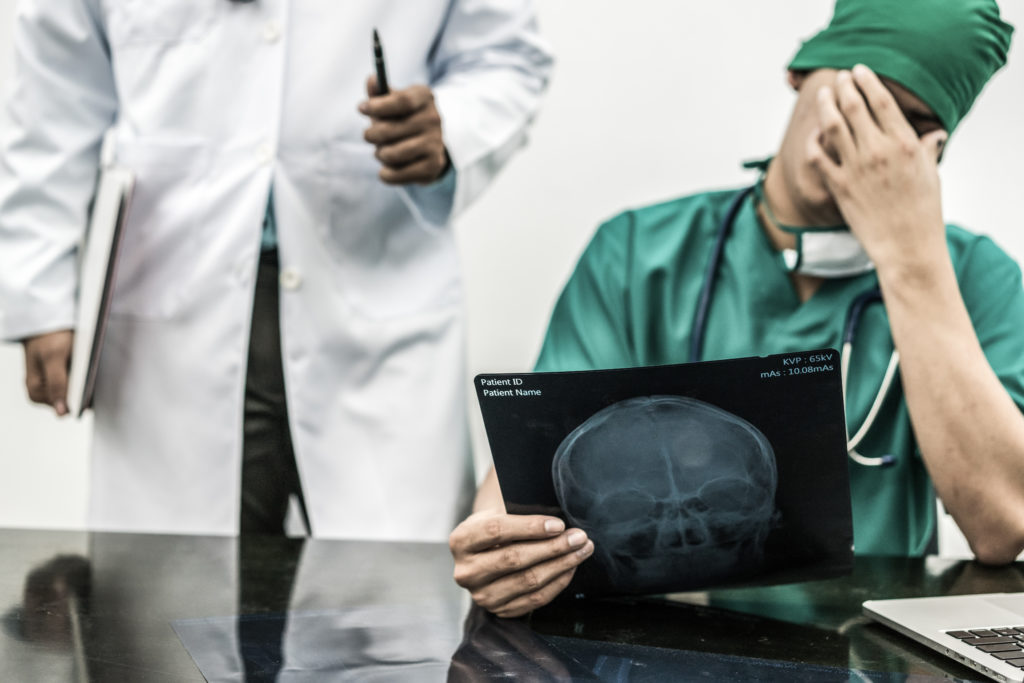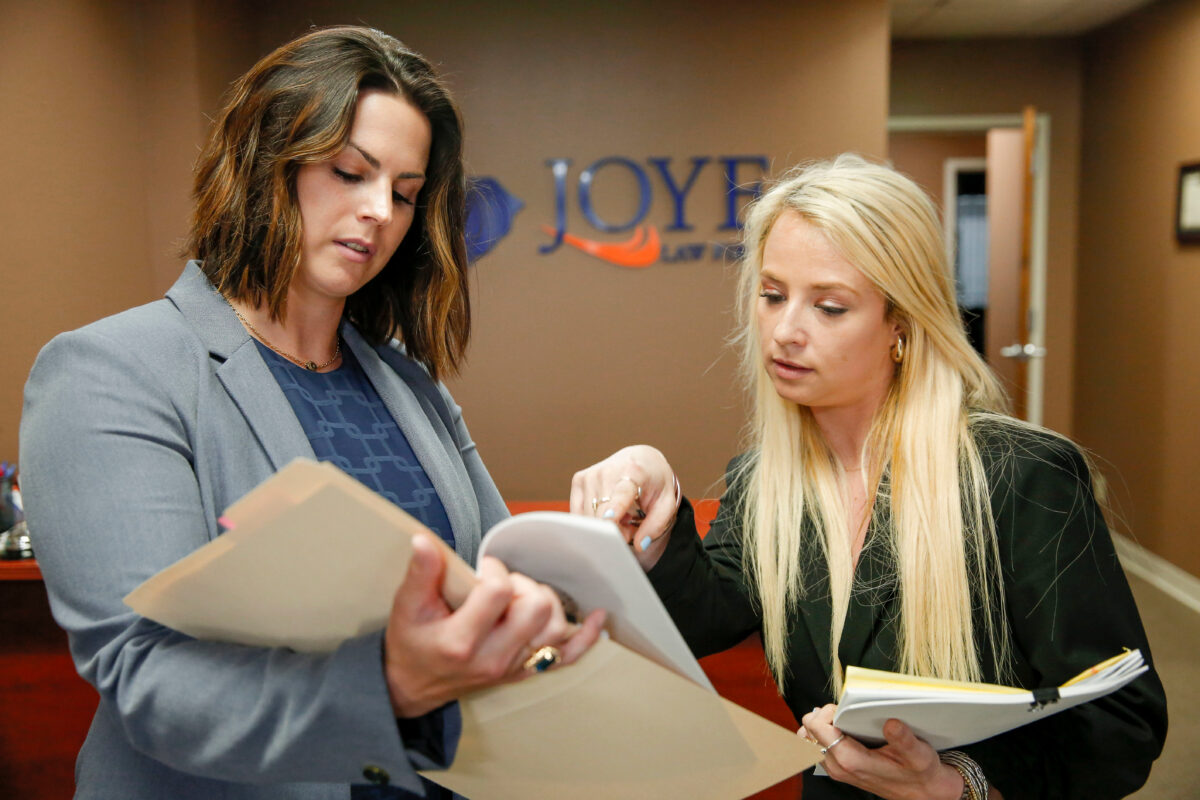
When you trust a doctor, nurse, or hospital with your care, you expect safe treatment. Unfortunately, medical mistakes happen in Columbia and across South Carolina every day. These mistakes, also known as medical malpractice, can lead to serious injury, long-term health problems, and even death. If you or a loved one suffered because of a healthcare provider’s error, you may have the right to seek compensation.
At Joye Law Firm Injury Lawyers, we assist patients and their families following harmful medical care. Since 1968, our law firm has guided clients through legal matters in South Carolina. Our Columbia medical malpractice attorneys work to hold healthcare professionals and systems accountable when their mistakes or policies cause harm. Our lawyers have received an AV rating from the prestigious Martindale-Hubbell, and several have been recognized in Best Lawyers in America and South Carolina Super Lawyers.
Rest assured that your case will receive the attention it deserves. We work closely with a network of attorneys and medical experts with extensive experience in cases of medical malpractice and negligence.
We know how overwhelming a medical malpractice claim can feel. That’s why we offer a free consultation. Let us explain your options and help you determine the best course of action. Joye Law Firm Injury Lawyers is here to help.
How Joye Law Firm Injury Lawyers Helps You with Medical Malpractice Claims in Columbia, SC
When medical malpractice occurs, it often leaves patients and their families dealing with physical pain, emotional distress, and mounting medical expenses. At Joye Law Firm Injury Lawyers, we understand how overwhelming this situation can be. That’s why our network of medical malpractice attorneys is dedicated to guiding clients through every step of the legal process. Here’s how our legal team helps people in Columbia:
- Setting up an interview with a legal nurse consultant who can verify if the standard of care was not met in your case.
- Reviewing medical records to understand what happened and identify where the care went wrong.
- Consulting with medical experts who help determine if your healthcare provider committed malpractice.
- Clearly explain your legal options, so you understand whether filing a claim is the right choice for your situation.
- Handling the legal process from start to finish, including filing paperwork, negotiating with insurance companies, and representing clients in court if needed.
- Pursuing fair compensation for your medical bills, lost wages, pain and suffering, and future medical needs.
Since 1968, Joye Law Firm Injury Lawyers has helped injured people across South Carolina. If you or a loved one suffered harm due to negligent medical treatment, we can help you take the next step forward. Your initial consultation is complimentary, and you won’t pay unless we successfully recover compensation for you.
What Is Medical Malpractice in South Carolina?
Medical malpractice occurs when a healthcare provider fails to meet the accepted standard of care, leading to injury or harm. This standard is based on the actions of other medical professionals in similar circumstances. If doctors fail to provide proper care and harm results, that may be considered malpractice.
In South Carolina, medical malpractice can involve doctors, nurses, surgeons, anesthesiologists, and other healthcare professionals. A Columbia medical malpractice attorney can help investigate your situation to determine whether malpractice occurred and if you have grounds to file a claim.
Common Types of Medical Malpractice Cases
Many types of errors can lead to a medical malpractice event. Some of the most common include:
1. Surgical Errors
Surgical errors are among the most visible and often devastating forms of malpractice. These errors may include:
- Wrong-site surgery: Operating on the wrong part of the body.
- Wrong-patient surgery: Performing a surgical procedure on the wrong patient.
- Retention of surgical instruments: Leaving tools like sponges, clamps, or gauze inside the patient’s body, known as a “retained foreign object”.
- Inadequate sterilization: Leading to severe post-operative infections.
Such errors can lead to severe complications, the need for additional surgeries, prolonged recovery, and sometimes permanent disability.
2. Medication Errors
According to the World Health Organization, medication errors cause at least 1.3 million injuries annually in the U.S. Common types include:
- Wrong medication administration
- Incorrect dosage
- Dangerous drug interactions that a healthcare provider should have anticipated
- Failure to account for patient allergies
Consequences can range from mild allergic reactions to life-threatening conditions such as organ failure or death.
3. Incorrect Diagnosis or Delayed Diagnosis
Misdiagnosis or delayed diagnosis is a leading cause of malpractice claims:
- Failure to diagnose conditions like cancer, heart attacks, strokes, or infections at critical stages.
- Misinterpreting test results, ignoring patient-reported symptoms, or failing to order necessary tests.
Delayed or incorrect diagnosis can allow a disease to progress unchecked, limiting treatment options and worsening patient outcomes.
4. Birth Injuries
Obstetrical malpractice can result in injuries to both mother and child:
- Cerebral palsy due to oxygen deprivation during delivery.
- Brachial plexus injuries often result from improper use of forceps or vacuum extraction.
- Failure to perform a timely C-section when medically indicated.
- Undiagnosed maternal infections that harm the fetus.
Such injuries may result in lifelong disability, intensive medical needs, and emotional trauma for families.
5. Failure to Obtain Informed Consent
Patients have a legal right to understand:
- The nature of a proposed treatment.
- Potential risks and benefits.
- Available alternatives include opting for no treatment.
Failing to explain these adequately or proceeding without consent violates both ethical standards and legal obligations. If complications arise from a procedure that wasn’t fully explained, it may constitute malpractice.
6. Anesthesia Errors
Errors involving anesthesia are dangerous and can occur before, during, or after surgical procedures:
- Incorrect dosage of anesthesia.
- Failure to monitor vital signs during sedation.
- Delayed reaction to complications like allergic responses or airway obstructions.
These mistakes can result in brain damage, cardiac arrest, or death, often within minutes if not properly managed.



